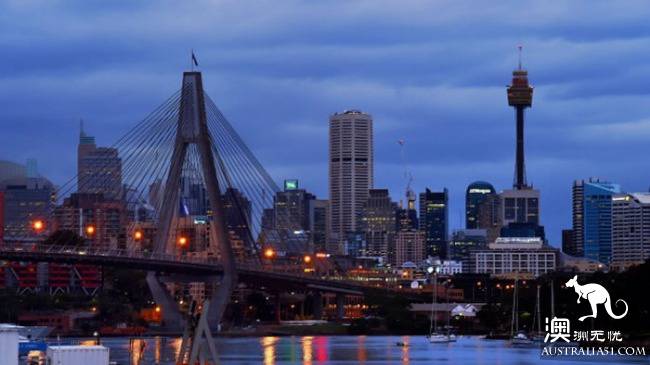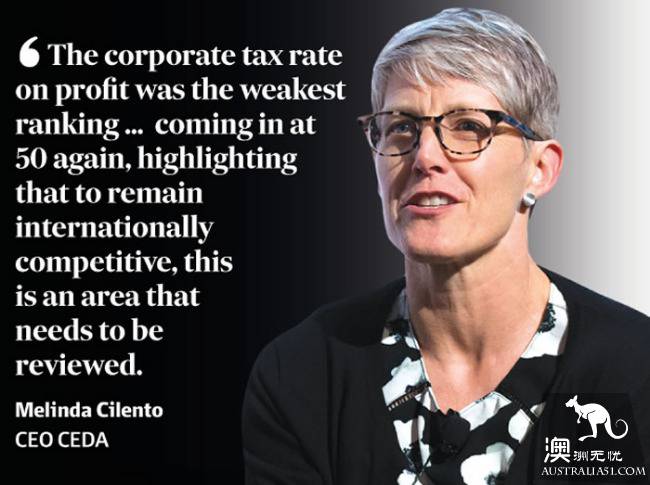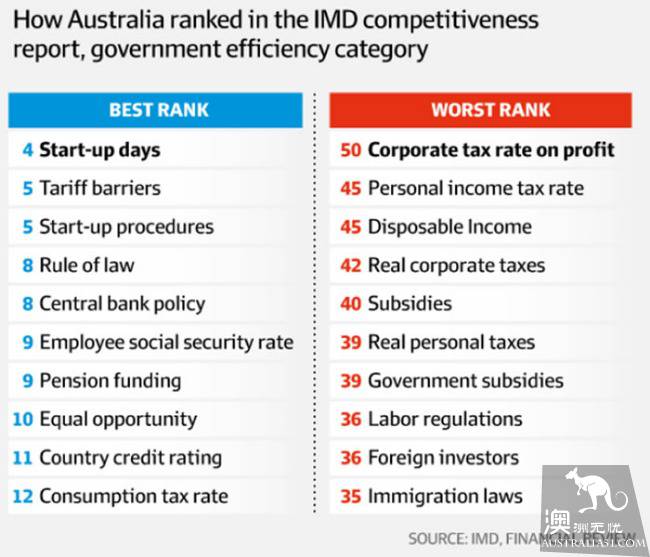Strong investment, population growth, exchange rate stability and improved budgetary prospects are one of the drivers of Australia`s rising global competitiveness, but the bad are bad in Australia`s high energy costs, inefficient taxes and poor urban planning. It has prevented Australia from becoming more competitive internationally.
The acclaimed Lobsang IMD business school, in its (World Competitiveness Yearbook) World Competitiveness Yearbook, raised Australia`s ranking by two places to 19, surpassing the declining UK and New Zealand.

Despite the positive results, (Committee for Economic Development of Australia) Melinda Chilento (Melinda Cilento), Australia`s Economic Development Council, said Australia still has major obstacles to improving its international competitiveness.
"Australia`s productivity rankings have fallen six places to 30th and are low in personal and corporate tax rates," she said.
Low productivity performance remains well below the historical average for improving living standards, suggesting that Australia needs to refocus on innovation and remove barriers such as disruptive taxes.
"the corporate profits tax rate, the weakest in the government`s efficiency category, is again ranked 50th, highlighting that this is an area that needs to be reviewed in order to remain internationally competitive," Mr Chilento said.
Super competitive circles led by the United States remained firmly in the top of the list in 2018, with the United States at the top of the list from fourth place last year.
The top five are Hong Kong, Singapore, the Netherlands and Switzerland.

The list includes more than 340 categories, along with Canada, Norway, Denmark and the United Arab Emirates, all of which are in the top 10.
Australia could have made it into the top 10 a decade ago, but the latest results suggest that Australia seems to be steadily declining from one of the world`s most productive, dynamic and investment-attractive countries.
economic indication
The IMD`s assessment of Australia`s economic performance has improved significantly, rising from 28 in 2015 to 25th last year. Australia ranks fifth in the Asia-Pacific region.
Improvements include significant improvements in investment-measured by total fixed capital formation, the strength of population growth, the mobility of inbound students, and the "adaptability of government policies."
Labor productivity, mobile phone costs and company flexibility have also improved.
But real GDP per capita growth has fallen, low consumer price inflation and high energy costs have weakened Australia`s advantage.
The report also points to deteriorating compliance with Australian banks and weak business research and development.
The biggest challenge for Australia remains to rely on "inefficient tax bases," such as income and corporate taxes, rather than excise and land taxes, IMD warned.
It also criticised Australia`s lack of energy security and stressed the need to effectively plan infrastructure to support fast-growing populations in cities.

Its final warning is that Australia must build the capacity to meet future skills needs around the education system.
"these issues need to remain on the national agenda." Said Chilento.
Australia`s lowest three indicators are a competitive tax system, government capacity and cost competitiveness. The ranking of these indicators is the same as in 2017.
In countries with a population of more than 20 million, Australia ranks sixth globally, behind Taiwan, Germany, China, Canada and the United States.

